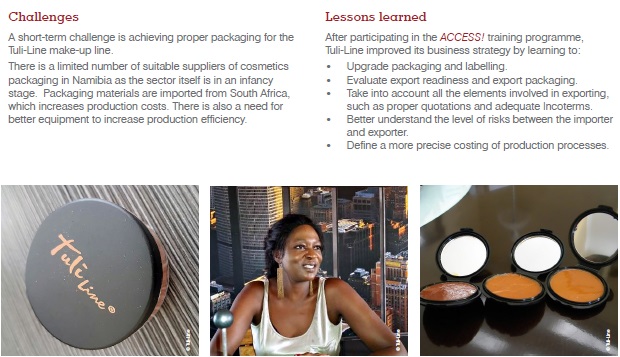Blog
Trade Governance Support to Empower Women Entrepreneurs

Prime Minister Jacinda Ardern of New Zealand became, on June 21 this year, only the second head of state to give birth in office, after late prime minister Bhutto of Pakistan. She is the youngest to give birth at 37. Prime Minister Ardern has used her position to create a $5.5 million package to assist families with increased maternity leave and other benefits, especially for the children’s formative years. This package was conceived some years back when she was an opposition Member of Parliament and at that time statistics showed that children in New Zealand were experiencing persistent poverty. She championed this cause to address constraints that families and particularly women were being confronted with in New Zealand society.
Prime Minister Ardern is one of only a small number of pioneering female world leaders, and she provides an example of using her role to empower and enable other women. That is a mission that is crucial for me, and for the organization I lead, the Namibia Trade Forum (NTF).
At the NTF, we have engaged with women entrepreneurs to access markets and navigate barriers to trade at home and abroad through a program called ACCESS!, through the development of pdf Namibia’s Retail Charter (751 KB) and through input into trade policy and negotiations.
The Retail Charter is aimed at removing structural barriers to entry of Namibian products on retail shelves. The NTF has identified that a barcode is a minimum entry requirement for shelf space and we are currently trying to establish a barcode center for Namibia as the country is currently reliant on the South African Centre. This means products produced by Namibian women will be more likely to be able to gain access to retail shelves.
The ACCESS! program provides business development support that is aimed at addressing trade barriers, particularly those affecting women businesses.

According to the International Trade Centre[1], women-owned enterprises that export tend to earn, pay and employ more, and tend to be more productive than domestic ones. Yet they are faced with innumerable barriers and obstacles to start-up, sustain and grow their businesses, including:
-
Lack of infrastructure
-
Access to Finance
-
Market access
-
Corruption and bureaucracy
-
Globalisation
-
Evolving regulations and policies
-
Gender bias
Women own up to 40% of small- and medium-sized enterprises (SMEs) globally, but only own one in five exporting firms. In our region, most of the SMEs are in the informal space and data is not readily available. Therefore, the policy is not informed by empirical evidence and hence global governance structures are deficient due to this gender bias.
Women entrepreneurs are the real heroes in our communities and it is up to trade policy practitioners, to, like PM Ardern, engage with the evidence and engage with the women on the ground to appreciate the reality of the female entrepreneurial experience. Through programmes such as ACCESS! and the development of the Retail Charter, dialogue can be forged or enhanced between the policy makers and entrepreneurs.
This knowledge and insight can then be carried into policy-making. The NTF is part of the negotiation team that is involved in various trade agreements and negotiations such as SACU, SADC, COMESA-EAC-SADC Tripartite Free Trade Area, African Continental Free Trade Area, and the SADC-EU EPA.
Thanks to programs that we implement such as ACCESS!, we can ensure that women entrepreneurs have a voice in trade governance discourse.
It is therefore encouraging that in December 2017, at the WTO Ministerial Conference in Buenos Aires, 118 WTO members joined forces to launch the pdf Declaration on Trade and Women’s Economic Empowerment (493 KB) . Together they agreed to develop best practices on how to apply gender-based analysis to domestic economy and international trade policy to encourage women entrepreneurship and financial inclusion, remove barriers to women’s participation in trade, and develop useful gender statistics and research.
Namibia was one of the signatories to that Joint Declaration, and as a trade negotiator and trade promotor, I will carry this with me as I continue to learn from, and advocate for, women traders.
[1] ITC. 2017. SheTrades: Success Stories from Namibia – Insights from ACCESS! businesswomen. Available at http://www.ntf.org.na/download/Access_success_stories_FIN-web.pdf
About the Author(s)
Leave a comment
The Trade Law Centre (tralac) encourages relevant, topic-related discussion and intelligent debate. By posting comments on our website, you’ll be contributing to ongoing conversations about important trade-related issues for African countries. Before submitting your comment, please take note of our comments policy.
Read more...





